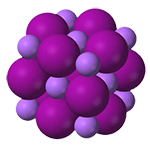



Potassium Citrate FAQs
QUESTION
My creatinine is 20. I am awaiting a transplant. I have my potassium and base excess carefully monitored by blood work. My doctor prescribes inexpensive sodium bicarb. I have not been able to find any studies that say this increases kidney stone formation.
ANSWER
Researchers at the Mayo did studies with PKD models in 1994 and 1997. This is when it was first discovered that alkalinity improved PKD and acidity worsened it and that sodium bicarbonate caused kidney stones to form in PKD'rs.
QUESTION
How does one begin potassium citrate?
ANSWER
Potassium citrate needs help from your physician. Before beginning a 24 hour urinary citrate will let you know if you are low in citrate (this is likely to be true with PKD). Get a base potassium, after a week repeat the potassium, then once every two weeks, then once a month, then once every three months, then once every six months then once a year. Continue to test your nightly urinary pH. Certain blood pressure medications, specifically ACE inhibitors, ARB raise serum potassium; check with your doctor. Become familiar with low and high potassium symptoms. Here is a listing of the potassium content of some foods.
QUESTION
I currently take sodium bicarbonate. I am interested in switching to sodium citrate. How do I do this?
ANSWER
Ask your physician about sodium citrate. Sodium citrate is also used in ice cream to keep the fat globules from sticking together. Here is a UK site about sodium citrate. Albright's solution contains: 75 g of sodium citrate, 25 g of potassium citrate, 140 g of citric acid, and 1000 mL of water. It is used in the treatment of renal tubular acidosis. Sodium citrate by prescription is available through a chemist shop. In the USA it is called: Bicitra Oracit.
SHOHL'S SOLUTION
What was the old time remedy for preventing kidney stones? It was Shohl's solution or potassium citrate. This prevents calcium from binding with oxalate and prevents the formation of calcium oxalate stones. Several tablets are made by Thomson MICROMEDEX and contain sodium citrate and citric acid. Sodium citrate (Bicitra, modified Shohl's solution, Citra pH). It has been used for a long time to treat kidney stones. There is a long standing medical treatment effacy with Shohl's solution.
QUESTION
Are there medications that raise serum potassium?
ANSWER
Yes there are. Blood pressure medication particularly ACE and ARB can raise potassium. Check with your pharmacist or physician about specifics of the medications you take. Generally blood pressure medications will raise serum potassium and diuretics lower potassium.
QUESTION
I am taking over the counter Potassium Citrate. It says each tablet is: Potassium 99 mg (from 258.6mg Potassium Citrate)....what does that mean? Should I be taking 5 or 6 of these pills a day?
ANSWER
To change mg of elemental potassium to mEq, take the number of mg and divide it by 39.0983 (atomic weight of potassium). For example, 99 mg is equivalent to 2.53 mEq. Conversely, if you know the mEq, multiply by 39.0983 to find the elemental potassium. For example, 2 mEq is equal to 78.0 mg. Potassium levels can become dangerously high if not followed closely by blood laboratory work. Animal PKD models received the equivalent of 15 mEq of potassium daily. This would be 6-10 tablets of the OTC over the counter potassium citrate 99 mg.
QUESTION
What can change a person toward the alkaline?
ANSWER
Emotions, lack of exercise, stress, are a few that will turn us acidic. This is a PKDiet lifestyle. Couple this diet with walks in beauty or nature or sharing a moment with a loved one or taking a long slow moment to relax or taking an afternoon nap or some activity which helps clear the mind for a very brief second or two, like taking (8) eight long slow deep breathes. Breathing clears any cellular lactic acid build up. The idea is to eliminate any acids within the body lessening the workload on cystic kidneys. This can be done through diet and maintaining an easy going lifestyle. If one cannot remain alkaline, then a small dose of citrate salts, nettle extract, cereal grass juice or other alkalizer helps.
QUESTION
What to do if my urine stays acidic?
ANSWER
Continue on the alkaline diet. Eventually a urinary pH of 7.5 will be achieved or one can try a few additonal things to hasten alkalinity:
non-alcoholic nettle extract dissolved in a half cup of warm water following each meal
cabbage juice with almonds
carrot beet juice
melon juice
lemon juice in warm water
take a moment for self
OTC potassium citrate
lemon egg or calcium citrate
QUESTION
What is neutral protein?
ANSWER
The protein requirement for someone with PKD before dialysis in 0.6 grams of protein per kilogram of body weight. This is a normal protein diet. It is not a low protein diet. It is the amount of protein, that will create a neutral protein balance. This means it is the amount of protein, which is just the exactly correct amount to take care of all the body's needs. There is no excess and there is no deficit of protein. If ingested proteins are plant based, this is best for our cystic kidneys.
QUESTION
Did Potassium Citrate Work in the PKD Model?
Yes, indeed. The PKD models that were fed potassium citrate maintained functioning kidneys throughout their lifetime. Their cystic kidneys felt different. Huge cystic kidneys did not develop in the PKD animal model fed potassium citrate. Alkalinity worked to diminish PKD symptoms and size.
